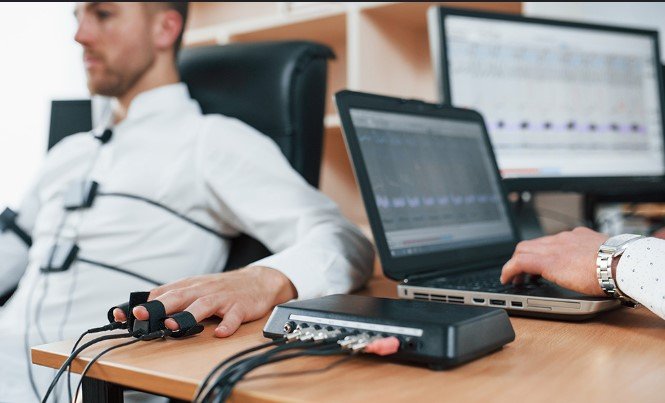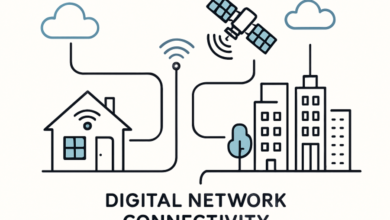Understanding Polygraph Tests: The Truth Behind Lie Detector Testing in Canada

Introduction to Polygraph Testing
Polygraph tests, commonly referred to as lie detector tests, have long fascinated the public and law enforcement alike. Rooted in the idea that physiological responses can indicate truthfulness, the polygraph has evolved over the past century into a widely known—though sometimes controversial—tool for detecting deception. In Canada, polygraph tests are used in a variety of contexts, including criminal investigations, employment screening in certain sectors, and even relationship counseling. While their accuracy and admissibility remain a topic of debate, the polygraph remains a significant instrument in Canada’s broader landscape of truth verification and psychological analysis.
How Polygraph Tests Work
A polygraph test operates by monitoring and recording several physiological indicators in a person’s body while they answer a series of questions. The primary variables measured include heart rate, blood pressure, respiratory rate, and skin conductivity (also known as galvanic skin response). The underlying theory is that deceptive answers will trigger involuntary physiological changes due to the stress or anxiety associated with lying. A certified polygraph examiner analyzes these responses, looking for significant deviations from baseline readings taken during control questions. Based on these patterns, the examiner then makes an assessment about whether the subject was being truthful or deceptive during the test.
Applications of Polygraph Tests in Canada
In Canada, polygraph tests are most commonly used by law enforcement agencies during criminal investigations. While the results of a polygraph are not typically admissible in court as evidence due to concerns about reliability and potential prejudice, they can be useful during interrogations to guide investigators. Police departments across the country may use the polygraph as a tool to eliminate suspects or to encourage confessions. Additionally, certain government positions, particularly those involving national security or intelligence, may require applicants to undergo a polygraph as part of the background screening process. Some private companies and security firms may also employ polygraph testing, though this is less common and generally not mandated by law.
Legal and Ethical Considerations
The use of polygraph testing in Canada is not without legal and ethical concerns. One of the key issues is its admissibility in court. Unlike in the United States, where some jurisdictions allow polygraph results as evidence under specific circumstances, Canadian courts have largely rejected polygraph findings due to questions about their scientific validity. The Supreme Court of Canada has ruled that polygraph evidence is generally inadmissible, arguing that its prejudicial effect could outweigh its probative value. Moreover, there are concerns about the voluntary nature of participation in such tests. Under Canadian law, individuals cannot be compelled to take a polygraph, and legal counsel often advises against it, as the results can be misinterpreted or misused.
Accuracy and Limitations of Polygraphs
One of the most contentious aspects of the polygraph is in Canada its accuracy. While proponents argue that the test can be up to 90% accurate when conducted properly, critics point to the lack of standardized methodology and the influence of examiner bias. There is also the potential for both false positives (truthful people failing the test) and false negatives (deceptive individuals passing the test). Factors such as anxiety, medical conditions, and even cultural differences can affect the physiological responses measured by the polygraph. Moreover, some individuals—particularly those trained in countermeasures—may be able to manipulate their responses to appear truthful. As a result, many experts caution against relying solely on polygraph results for making critical decisions, whether in legal, professional, or personal contexts.
Location in Canada
- Vancouver – 525 W 8th Ave #800, Vancouver, BC V5Z 1C6, Canad,
- Calgary – 685 Centre St S, Calgary, AB T2G 5P6, Canada
- Ottawa – 116 Albert St Suites X, Ottawa, ON K1P 5G3, Canada
- Hamilton – 1601 King St. East, Hamilton, ON L8K 1T5
- Laval – 3221 Highway 440 West, suite 222, Laval, QC H7P 5P2
- Edmonton – First Edmonton Place, 10665 Jasper Ave 14th Floor, Edmonton, AB T5J 3S9, Canada.
Read also: Performance TV: A New Era for Television Advertising
The Future of Lie Detection in Canada
While the polygraph remains a prominent tool in Canada’s investigative toolkit, the future of lie detection may lie in emerging technologies. Researchers are exploring alternatives such as brain imaging, eye-tracking, and voice stress analysis as potentially more accurate and less intrusive methods of detecting deception. However, these technologies are still in their infancy and face their own ethical and legal hurdles. Until a more reliable and universally accepted method is developed, polygraphs will likely continue to occupy a controversial but persistent role in Canadian law enforcement and beyond.




